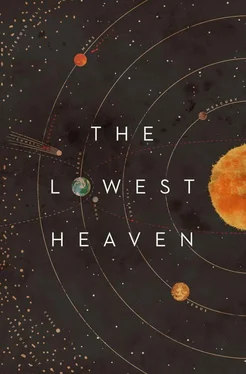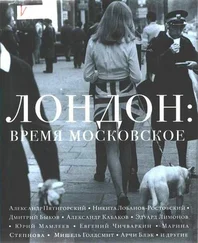“I realise that my offer’s likely to be rejected. But my masters won’t be satisfied until I have the answer from Rhawn herself. She’s here, isn’t she? I won’t take more than a few minutes of her time.”
“Your timing,” the robot said, “is either very fortuitious or very poor.”
“My timing is sheer luck,” Oleg said. “Until just now I didn’t even know that Rhawn had joined the Totalists.”
“She hasn’t.”
“I was told …”
“Rhawn has commenced her second crossing. But until it is complete, she will not be one of us. It will happen soon, though. We are confident in the force of her conviction. It is certainly much too late for reversal.”
“Can I at least talk to her?”
Again Oleg had the sense that matters were being discussed. Lights flickered and strobed in the cagelike enclosure of the robot’s head. Oleg risked a glance back, satisfying himself that the vehicle and its driver were still there.
“Rhawn is … receptive,” the robot said. “You will have your audience. But it will be brief. Rhawn has readied herself for the final phase of the crossing. She will not be detained.”
“I only need an answer.”
The robot brought him into the encampment. Up close, he saw that it was not as similar to the caravan as he had first assumed. There were hardly any enclosed spaces◦– just a few sealed modules which may or may not have been airtight. The remainder of the structures◦– most of them wheeled or skid-mounted, even as they were now parked around the Bone Cathedral◦– were for the most part skeletal frames. Their roofs were parasols and solar-collectors, their walls either absent or no more than concertina-hinged magnetic screens which could be drawn across when required. Gathered around and inside these treehouse-like forms were many similar-looking robots, lounging or reclining like overfed monkeys. They were plugged into bits of architecture via their abdomens◦– recharging from stored power, Oleg supposed, or perhaps pushing energy back into the community. There seemed little in the way of artistic creation going on. But perhaps the robots had been furiously preoccupied before his arrival.
“Is Rhawn one of these?”
“They are what Rhawn will become. It will not be long now.”
“You all look the same.”
“You all look like tinned meat.”
Through the thicket of skeletal structures Oleg was at last brought to an upright green block the size of a small house. It was a round-ended cylinder that might once have been a fuel tank or reactor chamber, before being anchored to a moving platform and gristled over with access ladders, catwalks and power conduits. In contrast to its surroundings this dumpy, windowless flask seemed entirely enclosed. Oleg’s robot host spidered up a ladder and looked down as Oleg completed his clumsy ascent. The robot opened a door in the side of the chamber, then stood aside to allow Oleg to pass through first.
It was not an airlock, for the interior of the green flask was still depressurised. Oleg had emerged onto a platform running around the circumference of the interior, with a circular gap in the middle. Supported in the chamber’s middle, with a large part of it beneath the level of the platform, was a hefty piece of biomedical machinery. Many cables and pipes ran into the upright, wasp-shaped assemblage. Three robots, much like his host, were stationed around the machinery at what Oleg took to be control pedestals. They were not moving, but the robots had plugged in to the pedestals via their abdomens. Oleg presumed that they were directing whatever complicated procedure was going on inside the machine.
The wasp-shaped machine culminated in a glass dome. Inside the glass was a beaked and goggled head much like that of Gris, except that it was encased within a bulky surgical clamp. Beneath the head, enclosing the neck, was a tight metal collar separating it from the rest of the machine.
Oleg surveyed the beaked and goggled face with deep dread and apprehension.
“Rhawn will speak to you now,” the robot said.
“Thank you, Rhawn, for agreeing to listen to me,” Oleg said hastily. “I have come from Jupiter, with …”
“I know where you came from, you spineless little shit.”
Oleg bristled. He had listened to enough recordings to recognise the voice as belonging to Rhawn, despite a deliberate machinelike filtering.
“I …” he began.
“Stop cowering. What are you, bacteria? A vegetable? The Totalists horrify you, but you are the puppet, the thing with no free will.”
“I only need an answer.”
“I studied your background, when I knew you were approaching. Oleg the failed artist. Oleg the supine instrument of market forces. Oleg the pliable little turd, shat out by Jupiter. Why do you imagine your insolent little piss-streak of an offer would be of the remotest interest to me? Why should I not have your suit drilled through now?”
“My masters thought …” His throat was as parched as the sunlit Playa itself. “They didn’t know that you’d left the Collective. They thought there might still be a possibility to …”
“To do what? To make me normal again? To bring me back to the condition of meat?”
“To undo what has been done.”
“As if it were a mistake, that I now regretted?”
“I didn’t mean it like that.”
“But your masters did. Did it never occur to question this mission? To doubt its idiotic purpose? To show the slightest sign of independent thought?”
One of the robots at the control plinths turned its head slowly in his direction.
“Things have changed since you came to Mercury,” Oleg persisted, refusing to waver under the robot’s eyeless regard. “No one knew what to make of your art, when you joined the Collective. It was too different, too hard to assess.”
“If they were idiots then, they are idiots now.”
“But idiots with money and influence. Do you understand the terms of the offer, Rhawn?”
“My understanding is irrelevant. I can no more be ‘undone’ than an egg can be unsmashed, or meat uncooked. Let me demonstrate. Have you a strong stomach?”
“I–”
But Oleg had barely begun to give his answer. The surgical clamp around Rhawn’s cyborg head was reconfiguring itself, pulling away to separate the tight-fitting segments of her armour. Oleg thought back to what he had learned from Gris, of how the cyborg exoskeleton had become its living skin. This was how it must have been for Rhawn, before she exiled herself to the Totalists. There was a human head under her metal plates, but it was a head already skinned back to an anatomical core of muscle and sinew and nervous system. She had been blind, without the cameras. She had no nose or mouth or ears, for she did not need to breathe or speak or hear. Her cyborg senses were wired directly into deep brain structure, bypassing the crude telemetry of ancient nerve channels. Machinery was plumbed directly into her heart and lungs.
“Are you horrified? You should not be. This is the state of being that Mercury demands of us. There is no pain, no discomfort, in being what we are. Far from it. We revel in our new strength, our bold new senses◦– our resilience. To each other, we have become beautiful. We drink in the sustenance of the dayside Sun and glory in the stellar cold of the Mercurean night. But why come this far, and not go all the way?”
“They tell me that your crossing is nearly done.”
“It’s true.” And for the moment her spite seemed to move off him. “There is almost nothing left of my old self now◦– the old vehicle in which I moved. What use are lungs and a heart, on Mercury? What use is a digestive system? What use is meat? These things are simply waiting to go wrong, waiting for their moment to fail us. To undermine us in our absolute, unblinking dedication to art. So we gladly discard that which the Collective fears to surrender. The flesh. Every organic part of ourselves. We donate our bones to the Bone Cathedral! The Playa was made for robots, Oleg◦– not ‘mere mortals’, or their half-way cousins. We are the true heirs of Mercury◦– we the Totalists!”
Читать дальше












